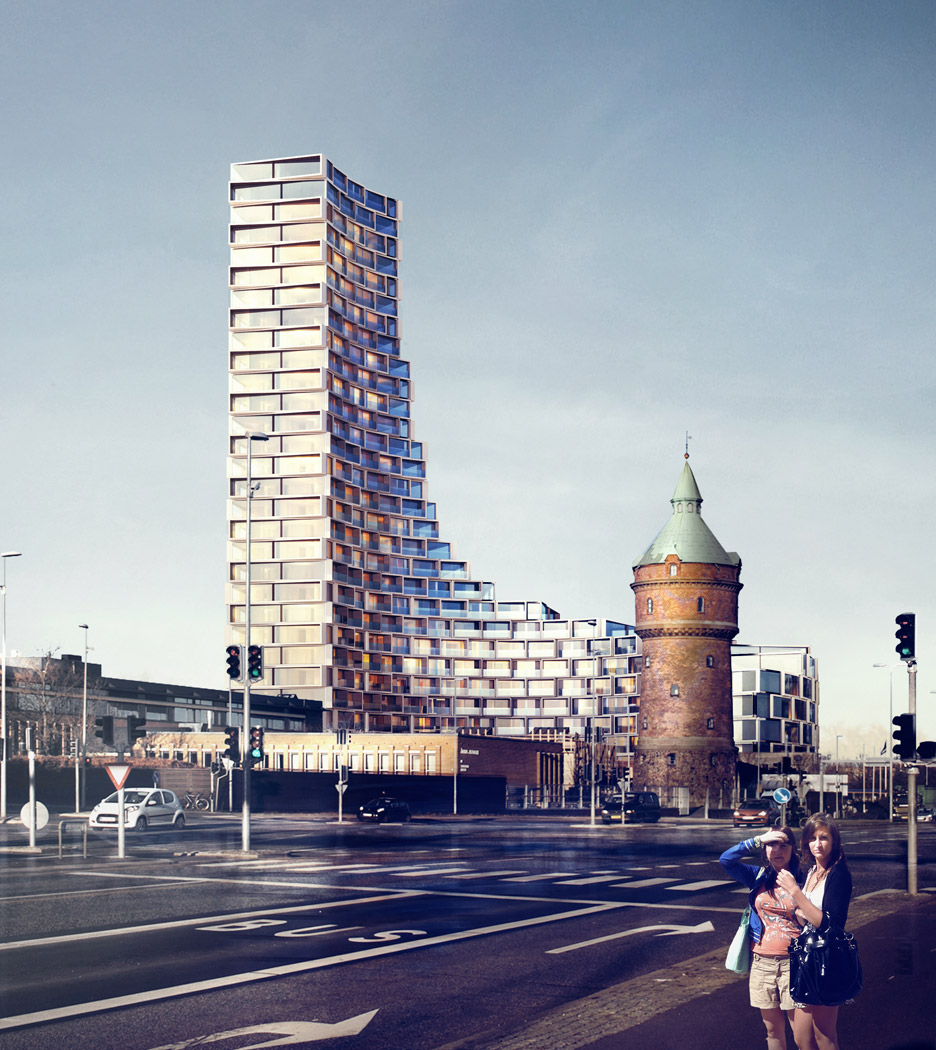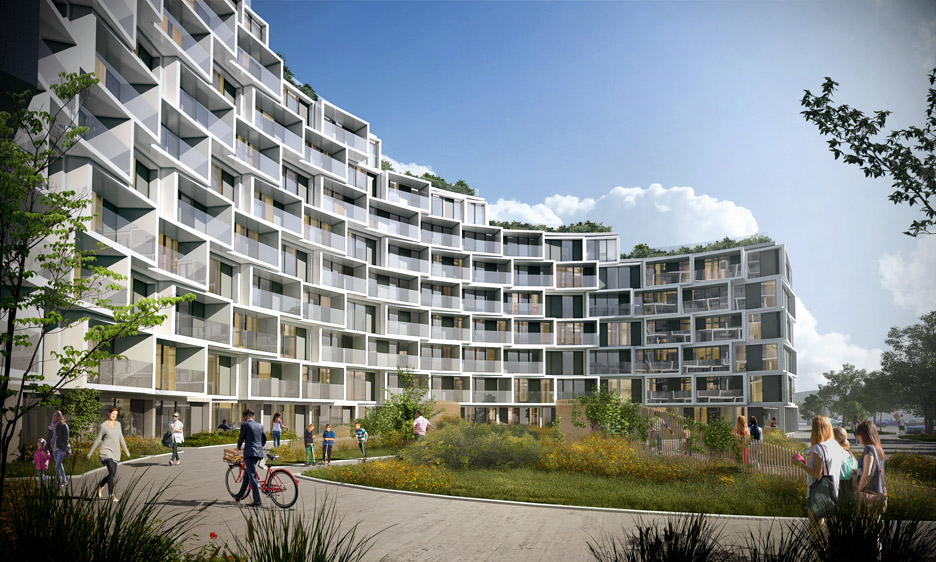3XN wins approval for Aarhus tower rivalling the height of the city's cathedral
3XN has unveiled plans to build a residential tower in Aarhus that will be almost as tall as the Danish city's cathedral.
The Copenhagen-based firm proposes the 95-metre-high structure beside a historic brick water tower, and has already received preliminary approval from the local planning authorities.
If built, it will be just one metre shorter than the 96-metre-high Aarhus Cathedral. It would become the highest residential building in the city, and one of the tallest buildings in all of Denmark.

3XN has been looking to develop the site for over a decade and has previously developed two now-scrapped schemes.
The latest proposal, known as La Tour, includes 22,500 square metres spread across 31 storeys. The building is semi-circular in plan, intended to respect the nearby water tower.
"La Tour responds to its specific location and will contribute to the surrounding neighbourhood on many levels and in a positive way," said 3XN founder Kim Herforth Nielsen.
"We paid particular attention to the building scale, so that it is both distinctive and visible in the city, but also embraces the local environment in one fluid motion," he added.
The building is expected to be granted planning permission in the summer. According to 3XN, it will offer low-cost high-quality housing suitable for young people and families.

Instead of a simple tower and podium arrangement, the building will feature a staggered profile that creates numerous terraces, offering residents expansive views across the city skyline.
"La Tour will forge an identity in the urban context," said Herforth Nielsen. "Visible in the distance from many parts of the city, it will become a part of the city skyline, serving as a point of orientation."
3XN has also proposed another high-rise design for the city. Partnering with UNStudio, its Light*house scheme includes a vision for Denmark's future tallest building.
The firm's portfolio also includes the widely celebrated Blue Planet aquarium and the heavily criticised Museum of Liverpool.